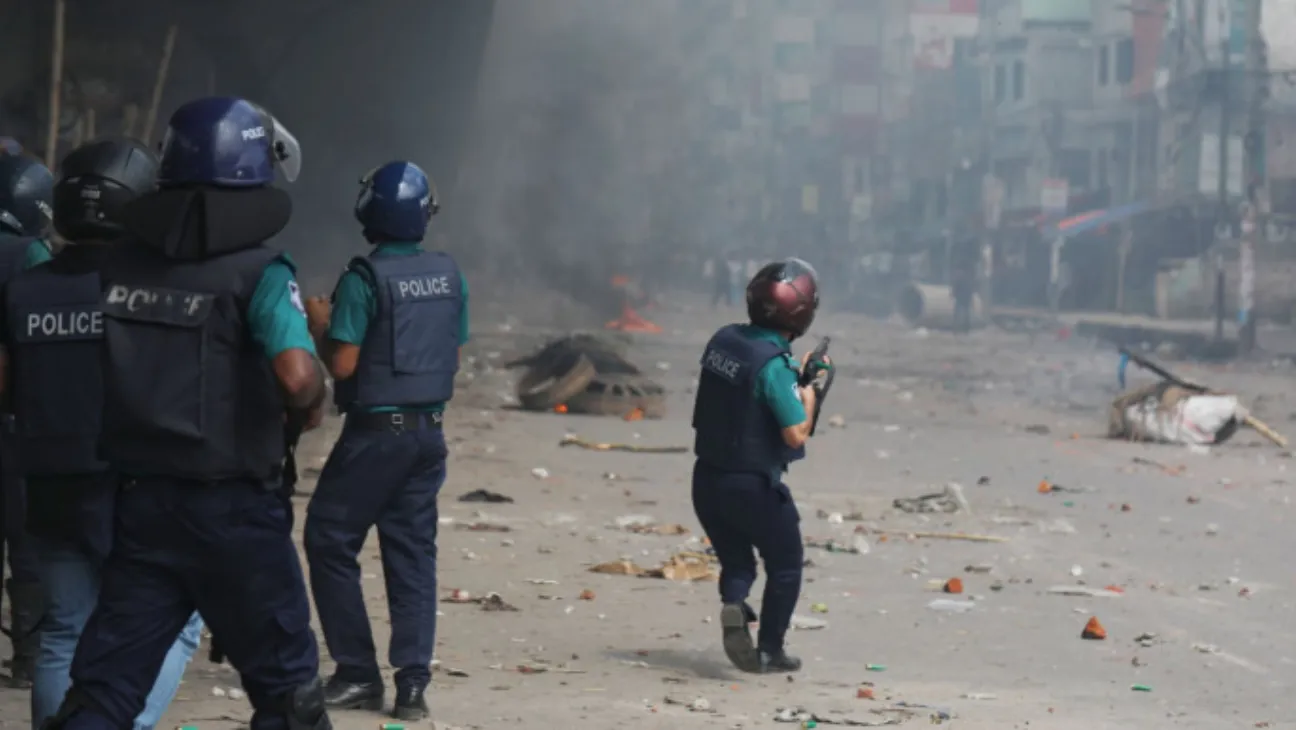A new report released in Dhaka on Tuesday claims security forces in Bangladesh systematically targeted protesters with headshots during last year’s mass uprising, leading to dozens of deaths.
The study, titled “They Aimed at Our Heads: Anatomy of Targeted Headshots & State-sponsored Violence in Bangladesh’s 2024 Mass Uprising,” alleges that law enforcement and affiliated political groups used lethal force to suppress public dissent.
According to the findings, at least 57 protesters were killed by gunfire, most of them in the Dhaka division. The majority of deaths were linked to police action, with other fatalities allegedly caused by the Rapid Action Battalion, military personnel, and activists from ruling party-affiliated organizations.
The data was presented at a public panel discussion organized by Sapran, a Dhaka-based rights advocacy group, at the Bishwo Shahitto Kendro.
Panelists described a coordinated crackdown during the July-August 2024 demonstrations. The report claims that many victims were not just active demonstrators but also bystanders or passersby.
The violence was brutal, with reports of attackers using military weapons like Chinese AK-47s and SKS rifles. In some places, they fired shotguns loaded with pellets directly at crowds.
Also Read: Mirza Fakhrul Urges Trial of Awami League Over Alleged Mass Killings
Zeba Sajida Saraf, a researcher at Sapran, said this fits a known pattern, explaining that dictatorships often rely on violence to hold onto power.
Her group’s solution has three parts: give more authority to the National Human Rights Commission, create an independent group to watch the police, and pass laws to protect people who speak out.
Family members of victims shared personal accounts. Md Solaiman Topu, whose brother Md Atiqur Rahman was shot in Jatrabari, described a protest that included children and elderly residents. “The police shot my brother dead. We demand justice,” he said.
Another relative, Sirajul Islam, said their family had never recovered. “Our mother cries for him every day. She says she wishes he had never grown up.”
Academics also spoke out. Dr Bokhtiar Ahmed of Independent University described the incident as “a massacre the state was preparing for over 15 years.”
“The barrel of the gun has become the source of power,” he said. “This is the dictator’s drug.”
ALSO READ | Bangladesh Urges India to Extradite Sheikh Hasina After BBC Investigation
Dr Rezwana Karim Snigdha from Jahangirnagar University said the deliberate targeting of the head signaled more than just violence. “It’s not just individuals being killed. It’s ideas,” she told the audience.
BRAC University lecturer Sadman Rizwan Apurbo accused authorities of violating both national and international laws. “The state killed its citizens in cold blood,” he said. “Police didn’t act like civil servants. They acted like enforcers.”
Journalist Zina Tasreen called for greater transparency around weapons procurement and usage by law enforcement agencies.
Sapran concluded the discussion by urging civil society to take police reform seriously, calling it a central issue for any democratic future.
No formal government response has been issued regarding the allegations presented in the report.









